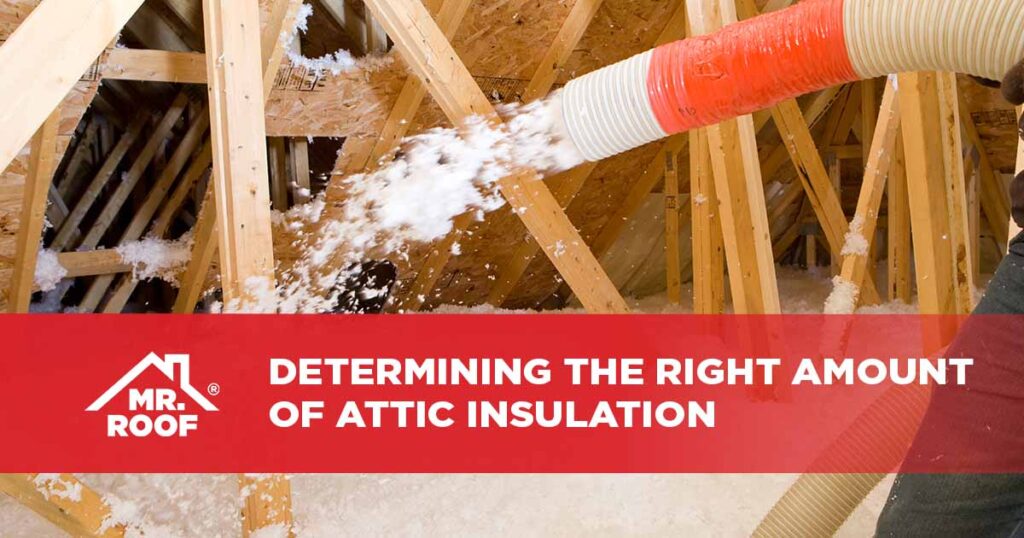As a homeowner, you know how important it is to keep your home comfortable and energy-efficient. One of the most effective ways to do this is by installing proper attic insulation. But how do you determine the right amount of insulation for your home? In this guide, we’ll explore everything you need to know about attic insulation, including the benefits of proper insulation, the types of insulation available, and how to hire attic insulation contractors.
What is attic insulation and why is it important?
Attic insulation refers to the material used to keep your home’s heat inside during the winter and outside during the summer. Proper insulation can help reduce your energy bills, improve your home’s comfort level, and extend the lifespan of your HVAC system. Without proper insulation, your home can lose up to 30% of its heat through the roof during the winter and gain up to 40% of the sun’s heat during the summer.
How much insulation do you need?
The amount of insulation you need depends on several factors, including the climate in your area, the size of your home, and the type of insulation you choose. The most commonly used measurement for insulation is R-value, which measures the insulation’s ability to resist heat flow. The higher the R-value, the more effective the insulation.
The Department of Energy recommends an R-value of at least R-38 for most homes, which translates to a minimum of 12 inches of fiberglass batt insulation or 10 inches of blown-in insulation. However, in colder climates, an R-value of up to R-60 may be necessary.
Benefits of proper attic insulation
Proper attic insulation offers several benefits for homeowners. In addition to reducing energy bills and improving comfort levels, insulation can also help reduce noise levels, prevent moisture buildup, and improve indoor air quality. Additionally, proper insulation can help increase the resale value of your home.
Types of attic insulation
There are several types of attic insulation to choose from, including blown-in insulation, batt insulation, and spray foam insulation.
Blown-in insulation is made of loose fibers that are blown into the attic using special equipment. This type of insulation is ideal for attics with irregular shapes or hard-to-reach areas.
Batt insulation, on the other hand, consists of long strips of fiberglass or other materials that are installed between the joists in the attic. This type of insulation is easy to install and is ideal for attics with standard shapes and sizes.
Spray foam insulation is a newer type of insulation that is applied as a liquid and expands to fill the space. This type of insulation is ideal for sealing air leaks and preventing moisture buildup.
Hiring attic insulation contractors – what to look for
When hiring attic insulation contractors, it’s important to do your research and choose a reputable company. Look for contractors who are licensed and insured, have positive reviews from past customers, and offer a warranty on their work. Additionally, make sure the contractor is familiar with the type of insulation you want and has experience working on homes similar to yours.
Mr. Roof’s attic insulation services
If you’re looking for a reliable attic insulation contractor, consider Mr. Roof. Our team of experienced professionals has been providing high-quality insulation services to homeowners for over 50 years. We offer quality insulation made out of the highest-quality materials, and we stand behind our work.
DIY tips for installing attic insulation
If you’re handy and looking to save money, you can install attic insulation yourself. However, it’s important to follow proper safety precautions and make sure the insulation is installed correctly. Some tips for installing attic insulation include wearing protective gear, sealing air leaks, and ensuring the attic is properly vented.
Maintaining your attic insulation
Proper maintenance is crucial for ensuring your attic insulation remains effective. Some tips for maintaining your insulation include inspecting it regularly for damage or wear, keeping the attic well-ventilated, and ensuring there are no gaps or air leaks.
Conclusion
Proper attic insulation is essential for keeping your home comfortable and energy-efficient. By understanding the different types of insulation available, determining the right amount of insulation, and hiring a reputable contractor, you can ensure your home stays warm in the winter and cool in the summer while reducing your energy bills. Contact us for your free estimate today and start enjoying the benefits of proper attic insulation.









